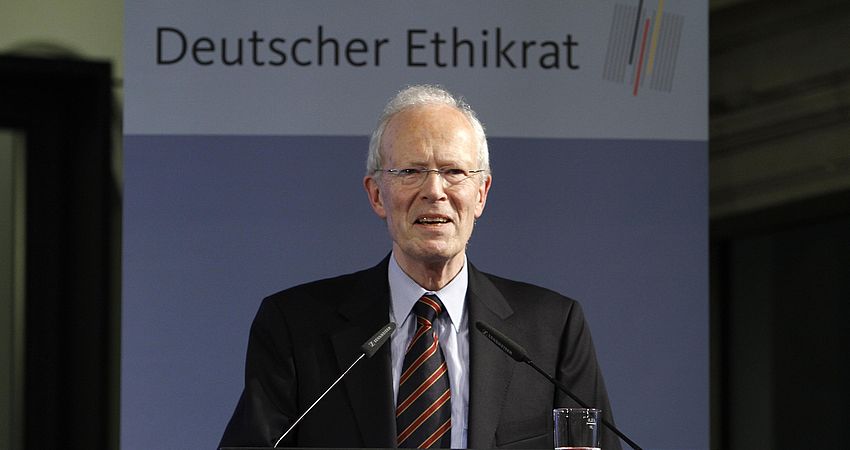Bioethics Forum
Mandatory Declarations for Organ Donations – Should the State Require that Each Person Declares Their Intent?

Prof. em. Dr. iur. Edzard Schmidt-Jortzig, Vorsitzender des Deutschen Ethikrates, Deutscher Ethikrat, Fotograf: Reiner Zensen
Topic
While representative surveys show that two thirds of Germans are generally willing to donate organs after death, only 17 percent have an organ donor card. Every year, more than 1,000 people die in Germany whose lives might have been saved by a donor organ. However, organ removal after death is currently only allowed if either the person concerned has given his or her explicit consent during his or her lifetime or if the relatives give their consent after death.
In order to increase the number of organ donations, the National Ethics Council, the predecessor of the German Ethics Council, proposed in 2007 that all citizens should be asked to declare whether they are for or against organ removal after their death or whether they do not want to make a decision (for the time being).
The German Ethics Council aims to encourage a renewed discussion of this proposal at an evening event in the “Bioethics Forum” series. The following questions, among others, will be addressed:
- Can we call upon a duty of solidarity to demand that citizens declare their willingness to donate organs so that more patients can be treated?
- How does a declaration regarding organ donation relate to the increasingly debated responsibility of the individual in the health care system?
- What other ethical, legal and organisational challenges would arise from the introduction of a mandatory declaration?
Following introductory lectures on transplantation medicine, on the normative assessment of possible solidarity obligations in the field of organ donation and on the current practice of talking to relatives of potential organ donors, these questions will be discussed on the podium and in dialogue with the audience.
